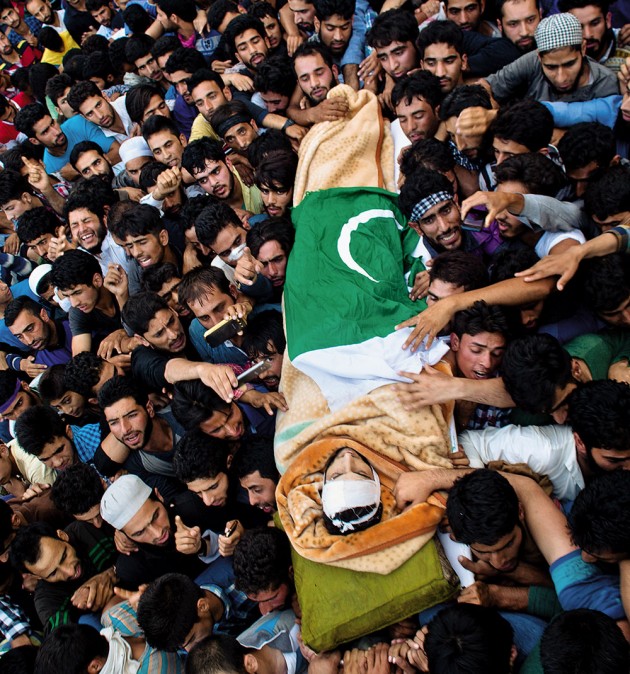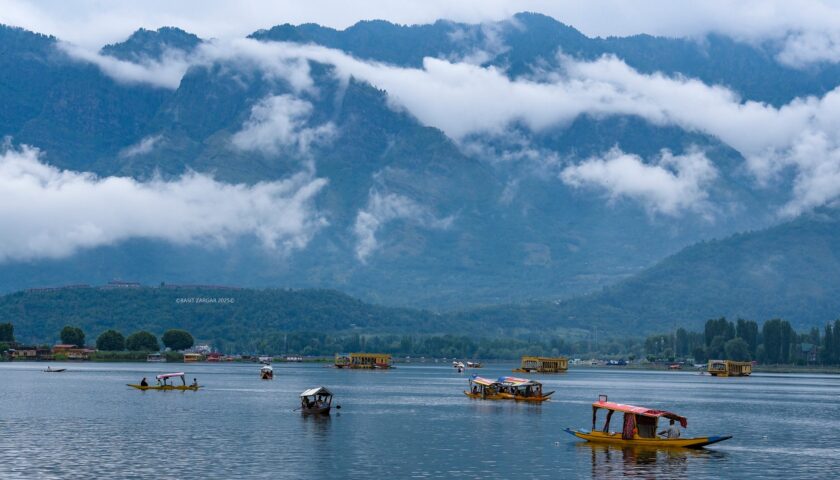Azadi
What exactly does azadi mean to Kashmiris? Why can’t it be discussed? Since when have maps been sacrosanct?
Arundhati Roy
 The people of Kashmir have made it clear once again, as they have done year upon year, decade upon decade, grave upon grave, that what they want is azadi. (The “people”, by the way, does not mean those who win elections conducted in the rifle sights of the army. It does not mean leaders who have to hide in their homes and not venture out in times like these.)
The people of Kashmir have made it clear once again, as they have done year upon year, decade upon decade, grave upon grave, that what they want is azadi. (The “people”, by the way, does not mean those who win elections conducted in the rifle sights of the army. It does not mean leaders who have to hide in their homes and not venture out in times like these.)
While we denounce—as we must—the gunning down of unarmed protesters by the security forces, the attacks on ambulances and hospitals by policemen, and the blinding of teenagers with pellet guns, we have to keep in mind that the real debate cannot only be about the violation of human rights by Indian security forces in the Kashmir valley. Egregious though they are, those violations are the consequence—the inevitable and unavoidable consequence—of the militaristic suppression of a people’s struggle for freedom. Kashmiris are not fighting for the establishment of the rule of law or an end to human rights violations. They are fighting for azadi. For this, they are prepared to face down bullets with stones. For this, they are prepared to die in numbers. For this, they are prepared to exhibit acts of open defiance that may lead to their death or incarceration in the most densely militarised zone in the world. For this, they are prepared to take to arms, to fight to the death, knowing full well that they will die young. They have proved that with tragic regularity. They have been nothing if not consistent.
It’s no use pretending that what the Indian government has on its hands is a fleeting law and order problem created from time to time by a fickle, volatile people. What is happening is a dangerous, spiralling crisis of unmanageable proportions in a region that is sandwiched between two hostile nuclear powers. For that reason alone it should concern the whole world.
If we really want address that crisis, if we really want to stop the endless cycle of killing and dying, if we really want to stem the haemorrhaging, the first step has to be a small concession to honesty. We have to have an honest conversation. However diverse the views may be, however opposed to one another—the subject of that conversation has to be azadi: What exactly does azadi mean to Kashmiris? Why can’t it be discussed? Since when have maps been sacrosanct? Should a people’s right to self-determination be denied at any cost? Are the people of India prepared to have the blood of thousands of ordinary people on their conscience? With what moral authority can we talk about all the other horrors being visited upon us, if we are prepared to swallow this one? Is the presumed “consensus” in India on the subject of Kashmir real or manufactured? Does it matter? In truth, it shouldn’t. What matters is what Kashmiris want, and how to arrive at that consensus in the most peaceful, democratic and informed way possible.
If there is to be a solution to this terrible, seemingly endless tragedy, we have to be able to think clearly, speak freely and listen fearlessly to things we may not want to hear. We have to find a new imagination. This applies to everybody, on all sides of the dispute.
Something beautiful could come of it. Why not? Why ever not?




